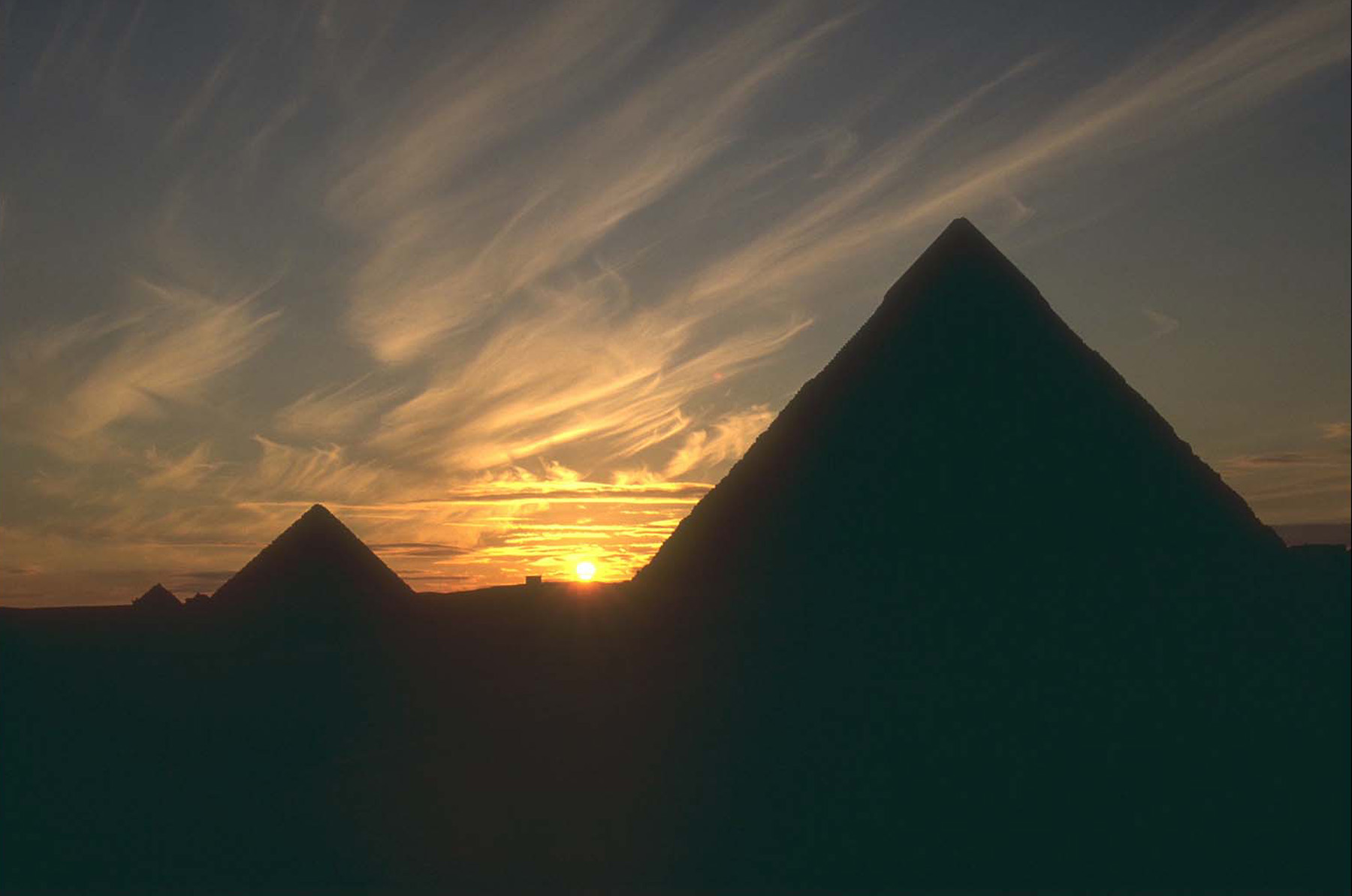The traditional practice is to perform the daily worship three times daily, at dawn, noon and at dusk. Play the video program and or follow along with the Devotional Worship Manual.
[private]
THE PURPOSE OF DIVINE WORSHIP
 This manual has been composed with original prayers, words of power and meditations on the Divine from Ancient Egyptian sources. Due to the scope of this volume it would be impossible to explain in detail the mystical teachings contained in each utterance. However, we have attempted to provide a basic knowledge related to the prayers and utterances. It is strongly suggested that you seek further instruction from the Shetaut Neter Book Series. you may send for the Egyptian Yoga Catalog and the Egyptian Yoga Guide. These two free pamphlets provide information about the teachings and the contents of the book series on Ancient Egyptian Yoga and mystical spirituality.
This manual has been composed with original prayers, words of power and meditations on the Divine from Ancient Egyptian sources. Due to the scope of this volume it would be impossible to explain in detail the mystical teachings contained in each utterance. However, we have attempted to provide a basic knowledge related to the prayers and utterances. It is strongly suggested that you seek further instruction from the Shetaut Neter Book Series. you may send for the Egyptian Yoga Catalog and the Egyptian Yoga Guide. These two free pamphlets provide information about the teachings and the contents of the book series on Ancient Egyptian Yoga and mystical spirituality.
The purpose of Ushet is to engender understanding and closeness with the Divine. So as you study and practice the teachings their deeper subtle and mystical meaning will be revealed to you automatically.
WHAT ARE Uashu and Shedy?
Uashu or Ushet means “to worship the Divine,” “to propitiate the Divine.” Ushet is of two types, external and internal. When you go to pilgrimage centers, temples, spiritual gatherings, etc., you are practicing external worship or spiritual practice. When you go into your private meditation room on your own and your utter words of power, prayers and meditation you are practicing internal worship or spiritual practice.
Ushet needs to be understood as a process of not only an outer show of spiritual practice, but it is also a process of developing love for the Divine. Therefore, Ushet really signifies a development in Devotion towards the Divine. This practice is also known as sma uash or Yoga of Devotion. Ushet is the process of discovering the Divine and allowing your heart to flow towards the Divine. This program of life allows a spiritual aspirant to develop inner peace, contentment and universal love, and these qualities lead to spiritual enlightenment or union with the Divine. It is recommended that you see the book "The Path of Divine Love" by Dr. Muata Ashby. This volume will give details into this form of Sema or Yoga.
Hekau or “words of power” are utterances which can be used to promote spiritual wisdom, health and well being, mental concentration and the transformation in consciousness. More will be elaborated on hekau in the section on words of power.
Shedy or Sheti: Spiritual discipline or program, to go deeply into the mysteries, to study the mystery teachings and literature profoundly, to penetrate the mysteries. Thus, Sheti signifies “spiritual discipline or program for promoting the understanding of Shetai (Hidden Supreme Being) and growing spiritually in a process leading towards spiritual enlightenment.”
"O behold with thine eye God's plans. Devote thyself to adore God's name. It is God who giveth Souls to millions of forms, and God magnifyeth whosoever magnifieth God."
GOD is hidden to Gods and men…GOD's name remains hidden…It is a mystery to his children (men, women, Gods) GOD's names are innumerable, manifold and no one knows their number."
"If you seek GOD, you seek for the Beautiful. One is the Path that leads unto GOD – Devotion joined with Knowledge."
"Seekest thou God, thou seekest for the Beautiful. One is the Path that leadeth unto It – Devotion joined with wisdom."
-Ancient Egyptian-African Proverbs
This teaching means that the path to the Divine is achieved with devotion to the Divine, implying the practice of developing increasing love for the Divine that gradually becomes all-encompassing and enlightening. That devotion is to be expressed in love for all things, primarily, the forms of the Divine that have been handed down by the sages of ancient Kamit. Then to its manifestations in creation. Further, it means the practice of that devotion through disciplines of the devotional path (chant, divine singing, meditation, etc.) including the performance of ritual. Increasing devotion leads to opening of the heart and melting the egoistic aspects of the personality which form the mental obstructions to spiritual realization.
Also the proverb implies that that devotion cannot be based on blind faith and emotionality. Rather, feeling in the practice of religion is to be tempered and augmented with wisdom. Wisdom comes from the study of spiritual texts, reflecting on the exposition of the teaching by qualified sages and then meditating upon that teaching, allowing it and it alone to occupy the mental space so that eventually one becomes one with the knowledge and that knowledge reveals itself as the experience of the innermost Self, the same object of supreme devotion. Then having experienced the knowledge it is realized as wisdom. This is what it means to truly be a shemsu (follower) of the religion.
TWO FORMS OF WORHIP
In ancient times there were two forms of worship. One is the Temple worship which was composed of private worship by the priests and priestesses and public worship led by the priests and priestesses. The other was the private worship in peoples homes. Ordinary people were to set up a temple room in their homes to conduct personal devotional practices.
MORNING WORSHIP
THE NOON WORSHIP
THE EVENING WORSHIP


